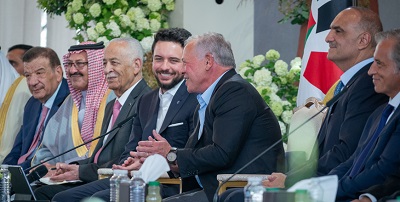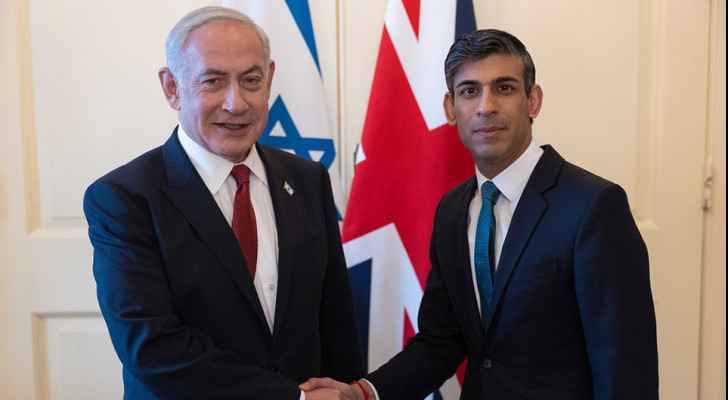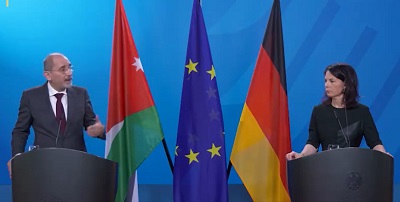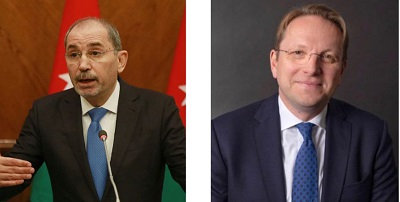15 years after Saddam’s ouster, the tragedy continues - By Adnan Hussein, Al-Mada
Many people wonder why, even after 15 years of Saddam Hussein's ouster, Iraq has not succeeded in being a stable country whose people enjoy the wealth of its natural resources, just like similar oil-producing countries. Here is an attempt to understand the issue.
The mirage of hope
At the time of the collapse of the biggest statue of Saddam Hussein in Baghdad’s central Paradise Square on April 9, 2003, many Iraqis, those living in the country as well as those who had fled it to escape repression, wars and poor living conditions, thought that Iraq's run of bad luck would turn into good fortune.
Even after US troops which destroyed the statue destroyed the state structures, the Iraqis hoped that Saddam's opponents returning from abroad would be able to rebuild the country at record speed, thinking that many of those who would run the country were highly qualified and experienced, especially those who had lived, learned and worked in European countries and the United States.
However, it wasn’t long before the Iraqis discovered that they had built castles in the air. Iraq had just come out of a dark tunnel but there was no light at the end of this tunnel, and the country once again entered a bleak phase.
Violence, terrorism and sectarian civil wars became the only features of the new stage. As years passed, administrative and financial corruption hogged the daily headlines. And now 15 years later, it turned out that nearly half of Iraq's estimated $1 billion in oil revenues have been siphoned off to a majority of high-ranking state personnel and their partners who facilitated the looting, laundering and smuggling of the country’s fortunes abroad.
These high-ranking officials (ministers, ministry deputies, general directors, governors and even deputies in the federal parliament, the Kurdistan Regional Parliament and the provincial councils) were mostly members and supporters of the many Shiite and Sunni political parties, which dominate the political process.
They were appointed to these posts according to an unconstitutional system which is based on a sectarian and partisan quota system. These posts and positions were distributed on parties which in turn handed them over to loyalists, relatives and affiliates, without taking into account the standards of competence, experience, integrity and nationalism.
The result was that they miserably failed in the administration of the state, provoking popular discontent caused by the collapse of the public service system and the deterioration of living conditions leading to high levels of unemployment and poverty despite abundant oil revenues.
Politicians by chance
The media and the popular discourse started bandying the expression “politicians by chance” to describe those who took over the administration of the state in the post Saddam Hussein era. It is an expression that is not far from truth since the new political class with its overwhelming majority came to power without much administrative experience. Their experience has been limited to secretive partisan activities mostly outside of Iraq.
If we name members of the Governing Council which ran the country in the first year after the overthrow of Saddam's regime, we will find that only three members out of 25 had any administrative experience. The three members were former diplomat, former foreign minister and the representative of Iraq at the United Nations for several years Adnan Pachachi and then there were Ahmad Chalabi and Iyad Allawi, who were the heads of private financial and technological companies (Allawi also worked as a consultant for UNICEF). But these three men have not been able to play effective roles in the new regime compared to other, “the politicians by chance” who got out of their secret cellars.
Sidelining the competent
Pachachi was a strong candidate to be the first president of the republic in the new era, but Shiite and Sunni parties strongly opposed this because he was a liberal secularist.
Allawi was entrusted with the first interim government, which only lasted one year. Its task was to prepare the country for the election of a national constituent assembly that would write the new constitution. This is indeed what happened, but they did not renew his term. The quota system was put into effect; as such the prime minister should be a Shiite.
Allawi was Shiite, but his party, the National Accord, was secular so they set him aside. They later worked to prevent him from presiding over the government even when his bloc
Iraqiya came first in the 2010 elections with 91 seats in parliament. He should have been entrusted with the formation of the government since he is the winner of the elections, but his rival Nuri al-Maliki, the head of the State of Law Coalition, was against the idea of commissioning Allawi and formed a Shiite alliance after the end of the elections. He went to the Federal Court to issue a ruling that the term the “largest bloc”found in the Constitution does not necessarily mean the winning bloc in the elections, but the one which is formed in Parliament after the elections!
Chalabi, who is considered the godfather of the operation of “liberating Iraq” from the Saddam regime, did not have better luck. He was deputy prime minister for a year, and none of the Shiite or Sunni parties wanted him to play a much important role because it would come at the expense of the roles planned for the “politicians by chance”.
As a result of the “politicians by chance” governing the country, bloody and devastating sectarian and terrorist violence swept the country. Iraq’s social and economic life was undermined by administrative and financial corruption. ISIS occupied a third of the country, causing a disaster which healing from its repercussions will require decades.
The great disaster is that the “politicians by chance” are still strongly clinging on to their failed and destructive experience. What has happened in the May 12 elections right up to the recent sessions of the new parliament show that they are clinging to the quota system with tooth and nail, which in effect points to a bigger tragedy.
Latest News
 King from Mafraq: Jordan’s security, sovereignty above all considerations
King from Mafraq: Jordan’s security, sovereignty above all considerations Sunak tells Netanyahu to “allow calm heads to prevail”
Sunak tells Netanyahu to “allow calm heads to prevail” Safadi, Germany’s Baerbock discuss war on Gaza, regional escalation
Safadi, Germany’s Baerbock discuss war on Gaza, regional escalation FM, EU commissioner discuss development cooperation, regional de-escalation
FM, EU commissioner discuss development cooperation, regional de-escalation Jon Stewart unpacks Iran launching missiles at Israel
Jon Stewart unpacks Iran launching missiles at Israel
Most Read Articles
- Senate president, Iraqi president discuss bilateral ties, regional issues
- King from Mafraq: Jordan’s security, sovereignty above all considerations
- Sunak tells Netanyahu to “allow calm heads to prevail”
- JHCO dispatches 75-truck convoy of food aid to Gaza
- UN agency finds unexploded 1,000-pound bombs in Gaza schools
- Sudanese rue shattered dreams as war enters second year
- Making emerging technologies safe for democracy - By Marietje Schaake and Steven Schuurman, The Jordan Times
- Massive fire engulfs Copenhagen’s historic stock exchange
- IMF ups global growth forecast but signals medium-term pessimism
- When Namibia stands up to Germany: How Gaza revolutionised the Global South - By Ramzy Baroud, The Jordan Times